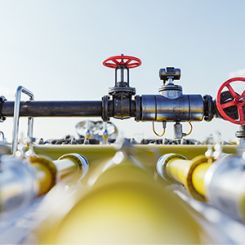
 For 64-year-old Edward Butts, engineering is a family matter.
For 64-year-old Edward Butts, engineering is a family matter.
The son of a water well digger and father to two engineers, Butts was raised around the water industry and brought up his children in the same way, spending most of his 48-year career designing and engineering water systems for municipal, industrial, commercial and wastewater systems.
Butts is the owner of 4B Engineering and Consulting and lives in Salem, Oregon, with his wife of 44 years.
He started in the pump industry in 1974 and worked installing and servicing pipes for a few years before switching to engineering. After getting licensed in the mid-80s, Butts has been working in civil, electrical and environmental engineering, as well as control systems, ever since. Much of his career, just shy of three decades, was spent working at Stellar Supply Company where he held a variety of positions including field technician, chief engineer, vice president of engineering and president. Butts served seven years as president before selling the company and beginning his consulting firm with his children in 2004.
Butts says he learned a lot from his first employer who was an outstanding mentor and inspired Butts to go into engineering.
“I think that having good mentors with experience and knowledge for the younger people is an excellent way to start out a career,” Butts said. “There’s no substitute for that practical experience.”
Being able to take on this mentor role himself, both for other engineers as well as his own children, Butts says, has been one of his favorite parts of his job.
“I appreciate the fact that I’ve been able to give a good example of how important engineering is to the world,” he said.
One challenge Butts sees in the industry is that the regulatory side is getting harder.
“We’re getting more and more emerging exotic and obscure water contaminants that are becoming regulated, and although we can now test down to levels of parts per billion or even trillions, there are many of these new contaminants we can’t treat or remove,” he said. “It’s almost impossible to adequately remove many of these contaminants to the EPA [Environmental Protection Agency] limit.”
Another challenge he sees is engineers relying too heavily on technology like programmable logic controllers (PLCs) and cellphones.
“I’m worried about the younger engineers coming up with that philosophy of design, that they may not be getting the adequate level of training or education that’s going to teach them how to temper the technology they have available with the practical side of applying it,” Butts said.
“We can develop new technologies faster than we can understand how to how to use them, and that can be a dangerous condition when applying it to potable water systems.”
Similarly, Butts said one of the hardest parts of his job has been keeping up with ever-changing technology and regulations.
“It’s very hard for single individuals to keep track and be able to apply all these when we’ve got hundreds or thousands of people coming up with new inventions and improvements on old technology,” he said. “It really underscores the need for continuing education as an engineer.”
However, Butts said one of the best parts of his job has been the satisfaction of seeing his accomplishments over the years. “Being able to build something and stand back and look at what you’ve created.
“It’s been a very rewarding career. I can’t believe it went by as fast as it did.”

